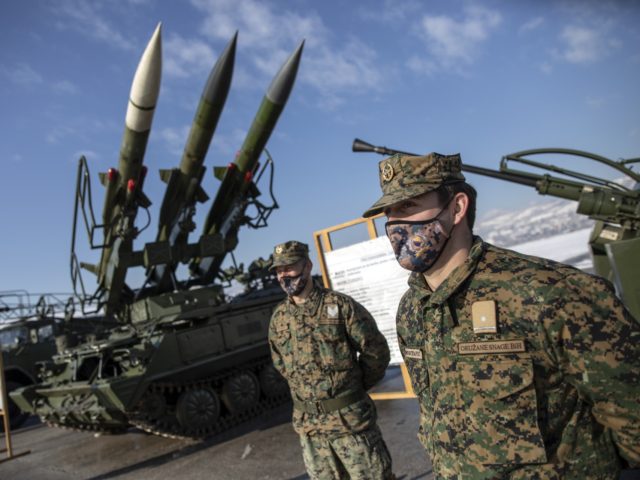Serb leader Milorad Dodik has compared himself to Ex-UK PM David Cameron regarding the possibility of seceding from Muslim-majority Bosnia and Herzegovina.
Milorad Dodik, the leader of Bosnia and Herzegovina’s Serb-majority region, has compared himself to ex-Conservative Prime Minister David Cameron after a law seen as the first step towards secession successfully passed in the Serb National Assembly.
Commentators have warned that the Serb-majority Republika Srpska leaving the Muslim-majority Bosnia and Herzegovina may lead to a return of ethnic violence in the region.
Dodik however has claimed that the newly passed law — which allows the Republika Srpska to begin the process of opting out of the Bosnian army, security services, judiciary, and tax system — did not represent an attempt at secession.
Instead, Dodik compared himself to the UK’s ex-Prime Minister David Cameron, saying he wanted a redistribution of power within the country, but not for Republika Srpska to leave it.
According to The Guardian, Dodik compared a speech he gave regarding the new law to Cameron’s so-called “Bloomberg” speech.
In that speech, the ex-PM had promised that he would campaign with all his “heart and soul” to remain in the EU during any future Brexit referendum, but only if the UK’s place in the union was renegotiated.
“In this speech, I replaced Great Britain with Republika Srpska, and Bosnia and Herzegovina with the European Union,” Dodik said.
Dodik has also claimed that he is merely looking for the reversal of the alleged centralisation of powers within the country, and emphasised the role of democracy within Bosnia.
“Let’s determine at this moment what Bosnia-Herzegovina needs and what it needs to stop doing,” he told the Serb assembly. “Entities and their parliaments should have greater significance and role because they are a true source of democracy, legitimacy and responsibility in Bosnia-Herzegovina. Bosnia-Herzegovina is moving in a direction we do not agree with. We do not allow interference in our jurisdiction.”
Serb politicians have taken the first steps towards seceding from Muslim-majority Bosnia and Herzegovina in a move that could see the return of ethnic violence in the Balkans https://t.co/1FJmH7OQvT
— Breitbart London (@BreitbartLondon) December 12, 2021
Despite Dodik’s reassurances, the United States has expressed concerns over the possible return of ethnic violence to the region, the likes of which was last seen during the Bosnian war.
Over 100,000 people were killed in the conflict, with instances of ethnic cleansing a common occurrence during the war.
The possibility of sanctions being put on Republika Srpska in an effort to prevent secession has been raised, with Dodik himself already having assets frozen.
“I think we’ve seen some evidence that the leverage we have, that includes policies like sanctions, can be effective [in] trying to shape behaviour,” said one senior US official on the matter.
Another serious obstacle in the way of a full Serb secession from Bosnia is the possible lack of political will, with political experts wondering if Serbs have the willpower to follow through on any referendum.
“It is one thing to engage in nationalist rhetoric, it is another to actually pick up arms,” said one political science professor.

COMMENTS
Please let us know if you're having issues with commenting.